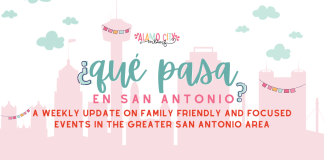Everything has a culture: a school, a family, a country, a state, a company. Any group of people under a similar identity has a culture that helps unite it. After getting married, my husband and I began building our family culture, whether it was intentional or not. We both felt strongly about some things and had to work to find common ground on them, and other things sort of developed on their own. Add kids to this mix, and I suddenly realized that having a strong culture within our home was important for them to be able to walk out confidently knowing who they were and where they stood. Of course, my kids are little, so there is a lot of development still happening and a lot of that identity will be unique to each of them.
Even at five, my oldest has already noticed differences among those her age and has zero hesitation pointing them out. The wonderful thing about kids is that skin is just color to them, and they point it out in the same way they would mention that our house is red and my husband’s car is green. My daughter came home and exclaimed, “My friend is brown like me!” She then went through all her school friends and told me whether each was brown like her, white like her cousin, or in her words, “brown like me, but more brown, you know?” I had never thought about raising my kids in a bi-cultural way because I felt that I bore the brunt of that for them in my growing up. I thought they could just be. Cultural identity seemed less important than family culture when thinking about raising kids. Then my daughter began to scratch the surface of this topic. This is just skin color. Literally, the very surface.
The truth is that cultural identity has always cast a bit of a shadow over everything for me. I wasn’t born here, but I moved here when I was little and grew up in San Antonio. I became a U.S. citizen when I was in 7th grade but still have my Mexican citizenship as well. Seems simple enough, but when you’re a kid figuring out who you are and what you think about, well, everything, it’s hard to really pinpoint where your cultural identity comes from. It’s like there is this basket of topics that I never truly formed an opinion on in order to avoid conflict with either culture. Occasionally one of them gets jostled out and I have to address it. Honestly, I didn’t engage this conversation until sometime in the last 10 years. Partly because I used to be truly talented in the art of being alone, which for some reason I have absolutely failed at since getting married and having four kids. Now I am suddenly in close contact with new friends, new extended family members, and people in general, as my husband is 100 times more extroverted than I am. Unfortunately for me, when you meet people, they ask you questions. Sometimes really hard things, like “Where are you from?”
I know what you’re thinking, and no, it is not as easy of a question as it seems. I would go back and forth in my head: “Mexico. No, San Antonio. No, Mexico. No…” If I said just one of them, it wasn’t a picture of my full self. So the very best answer I have come up with is “neither here nor there.”
The more I talk to others who, like me, were back and forth—both looking back while assimilating here—the more I realize just how real this alternate culture is. It’s an in-between culture rarely addressed and only really shared if you have a sibling. It’s very real yet vague and therefore leads to a feeling of not belonging. It is incredibly confusing when you feel too American for your Mexican family and too Mexican for Americans. I had to be cool about not liking kettle corn or root beer floats and try to be low-key about how obsessed I was with putting Cholula on everything. I feared losing my “Mexican-ness.” To my American friends I am Mexican, and to my Mexican friends and family I am Americanized. The two groups I really desired to belong to the most were the ones that would see me as different than they were. I found that I was dealing with acculturation of two cultures at the same time all while navigating the world of speaking a language better than my parents and everything that comes with that. I had family that would fake a bad accent when speaking to me in Spanish even though I don’t have an accent. This only added to my insecurity of not being quite like them. Just because you’re not entirely one culture or the other does not mean you should be shamed for it. It has only taken me all of my 28 years to figure that one out.
And to quote Selena (at least her big screen version as played by JLo), “And we gotta prove to the Mexicans how Mexican we are, and we gotta prove to the Americans how American we are. We gotta be more Mexican than the Mexicans and more American than the Americans, both at the same time. It’s exhausting. Damn. Nobody knows how tough it is to be a Mexican American.” Preach it, girl.
My kids will have an entirely different struggle with acculturation. Like I said, I truly didn’t think they would have to even deal with it. I thought I could be the bridge for them. The more I embrace my bi-culturalism the more I realize that their own cultural identity will likely be somewhere in the “neither here nor there” as well. Some of their experiences might be much like mine, and I’m already seeing how some might be different. When my eldest first chose to start speaking to me in English, my heart sunk. I still remind her that I will not respond unless she speaks in Spanish, but it’s already not her first choice—and that hurts. I can’t let her see that hurt because I know it will only heighten her awareness of the conflict between her parents’ cultures. Two things we will not allow to infiltrate our family culture: shame and this idea that bi-culturalism is some kind of unfortunate side effect of their circumstances.
What I can do is help my kids understand who they are and that their makeup is unique to them while allowing them to embrace things along the way without fear. They can build their own unique culture while walking hand in hand with the two they have inherited. Perhaps unlike me, they won’t be left with a basket full of untouched topics and issues that they avoid to continue belonging. One thing that is non-negotiable when it comes to our family culture: we will create a space of belonging no matter what.











